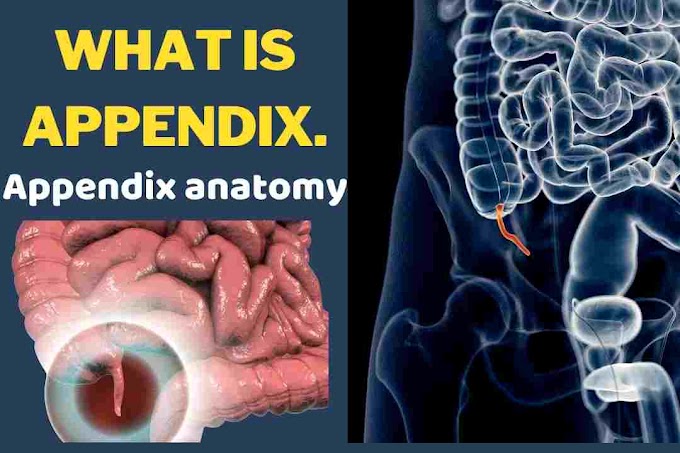Pneumonia Causes, Symptoms, Diagnosis, Treatment, And Prevention
Pneumonia is an infection of the lungs which causes the lung's air sacs or alveoli filled with pus or fluid, due to this oxygen in the lungs could not reach the bloodstreams. Pneumonia can affect people of any age group but children less than 2 years of age & adults more than 65 years of age are at the highest risk because in both age groups immunity of the body is low. This is because the immunity of the body is very low in this age group. Friends now talk about what are the reasons for Pneumonia.
Causes
Pneumonia can occur due to many types of bacteria, viruses, and fungi. The most common bacteria which cause pneumonia is "Streptococcal Pneumoniae" and pneumonia caused by them is called "Pneumococcal pneumonia". Bacterial pneumonia can occur on its own or may develop after anybody had a viral cold or flu. Those who are recovering from the surgery, having a respiratory disease or viral infection, or having a weak immune system are at the highest risk of developing bacterial pneumonia. The second cause of infection is viruses. Viruses that infect the upper respiratory tract can also cause pneumonia. "Influenza virus” is the most common virus causing viral pneumonia in adults, & the "Respiratory Syncytial Virus "is the most common cause of viral pneumonia in young children. The third is Fungi. Fungi cause pneumonia most commonly in those who are having chronic health problems, having a weak immune system & who have been exposed to large doses of fungi from contaminated soil.
Symptoms
Now know about the Risk Factors for Pneumonia - The first risk factor is aging more than 65 years or young children less than 2 years of age, the second is Lung diseases like COPD, Bronchiectasis, Cystic Fibrosis, Other Serious illnesses like Diabetes, Heart diseases, Sickle cell disease. Patients with Weak Immune system due to HIV/AIDS, Organ transplant, Chemotherapy, Long term use of the steroid. Patients having Neurological conditions like Stroke, Parkinson's in which there is difficulty in swallowing if any patient is hospitalized or on a ventilator. Cigarette smoking, Drugs, and Alcohol abuse increase the chances of pneumonia. Exposure to chemicals, toxic fumes, and pollutants also increases the chances of pneumonia. Now talk about Symptoms of Pneumonia - Symptoms of pneumonia can vary from mild to severe. The Cough may be greenish, yellowish, or bloody. Fever, Sweating, Chills can occur. Difficulty in breathing can occur. Chest pain, Heaviness in the chest can occur. Lethargy, Weakness, Loss of appetite can occur. In older people, mental confusion could be a symptom. Friends Bacterial Pneumonia is the most common type of pneumonia and it causes the most serious infection. Friends Symptoms of bacterial pneumonia may develop gradually or suddenly but viral pneumonia develops over days. Friends, now we should talk about what are the ways to diagnose the Pneumonia.
Diagnosis
The diagnosis of pneumonia medical history of the patient is very important. To diagnose which organism has caused the pneumonia doctor may ask questions related to the history of the patient like History of recent travel of patient, what is the occupation of the patient, what he does & where he works history of any contact with the animal, recent exposure to any sick patient, the recent history of hospitalization, or recent illness. The second step in diagnosis is Physical Examination - In pneumonia, lungs develop abnormal sounds like rumbling, crackling, and that is diagnosed by the doctor by stethoscope. Doctors sometimes suggest some specific test to diagnose pneumonia-like Blood test -Complete blood counts indicate the type of the organism which has caused pneumonia. Chest X-ray - It indicates the location of the infection in the lungs & the extent of the damage. Next is Pulse Oximetry -It indicates the level of oxygen in the blood. Next is the Sputum test indicates which organism has caused pneumonia. Friends In seriously, ill patient-doctor can further prescribe some advanced tests like CT scan -It helps in better assessment of the damage caused to the lungs by the infection. Next is Arterial Blood Gas - This test shows the exact level of oxygen in the blood. Pleural fluid culture - This test helps in identifying the bacteria which caused pneumonia. Bronchoscope - with the help of this technique fluid and tissue from the windpipe and lungs are taken & examined to identify the source of infection.
Treatment
Friends now talk about the Treatment of pneumonia - Friends Treatment of pneumonia depends upon the severity of sickness, Age of the patient, other health-related problems of the patient. If the symptoms of the patient are of a mild degree, the patient is young, the patient does not have any other disease, and infection of the patient can be treated at home by medicines prescribed by doctors. If the patient developed bacterial pneumonia, antibiotics are prescribed; however, antibiotics are not effective for viral pneumonia, for the antiviral are prescribed. Paracetamol & ibuprofen are prescribed for fever.
Prevention
The patient
is advised to drink plenty of water it helps in loosening the infective
secretions so the infective secretions can come out easily. Avoid Cough syrups
because coughing is a protective mechanism to expel out the infection outside
the body. Drink warm beverages, Use humidifiers which help in expelling
infective secretions outside the body. Avoid Smoking, Pollution, And Toxic
Fumes. Take rest as much as possible. In a severe degree of symptoms, the
doctor may advise for hospitalization which should be followed immediately.
During recovery, the patient should avoid meeting with family & friends as
this can transmit infections to them, Friends, by following a few steps Pneumonia
can be prevented - like getting Flu vaccine every year. Properly wash your
hands especially after blowing your nose, going to the bathroom, before
eating or preparing food. Avoid smoking as smoking is the highest risk factor
for the development of pneumonia infection. Follow a healthy diet, regular
exercise, Proper rest as all these boost the immunity





0 Comments
Please donot enter any spam link in comment box!